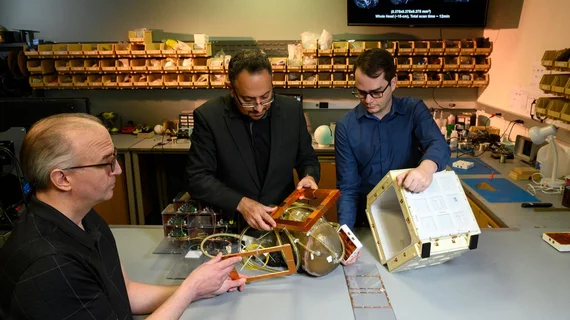‘Tic Tac Toe’ MRI technique uncovers sickle cell’s impact on the brain
A new magnetic resonance imaging development has uncovered new insights into how sickle cell disease affects the brain.
The technique combines whole-body 7-Tesla MRI with a “Tic Tac Toe” radiofrequency head coil system, researchers explained recently in NeuroImage: Clinical.
When put to the test, the novel approach revealed structural abnormalities within the hippocampus—a complex brain region that controls learning and memory, University of Pittsburgh experts noted. Similar injuries have been seen in other neurodegenerative and neuroinflammatory diseases.
"Our findings support and extend previous reports of reduced hippocampal volume in sickle cell disease patients but provide more insights on the specific hippocampal subfields that are impacted," Tamer Ibrahim, PhD, director of Pitt’s Radiofrequency Research Facility and the 7T Bioengineering Research Program, added Thursday.
The subfields are so small they can only be seen via ultra-high-resolution imaging, such as that developed by Pitt engineers.
Ibrahim and co-investigators are planning to further investigate the underlying mechanisms causing structural brain changes and how they relate to cognitive performance in those with sickle cell disease.
An estimated 100,000 people in the U.S. live with this red blood cell disorder, and it disproportionately affects African Americans.

